20 巻, 1 号
選択された号の論文の11件中1~11を表示しています
- |<
- <
- 1
- >
- >|
日本島嶼学会設立20周年特別編
-
2019 年20 巻1 号 p. 1-5
発行日: 2019/02/28
公開日: 2020/09/29
PDF形式でダウンロード (344K)
特別寄稿:日本島嶼学会設立20周年記念講演
-
2019 年20 巻1 号 p. 7-21
発行日: 2019/02/28
公開日: 2020/09/29
PDF形式でダウンロード (642K) -
2019 年20 巻1 号 p. 23-30
発行日: 2019/02/28
公開日: 2020/09/29
PDF形式でダウンロード (627K) -
2019 年20 巻1 号 p. 31-36
発行日: 2019/02/28
公開日: 2020/09/29
PDF形式でダウンロード (443K) -
2019 年20 巻1 号 p. 37-52
発行日: 2019/02/28
公開日: 2020/09/29
PDF形式でダウンロード (902K)
論説
-
2019 年20 巻1 号 p. 53-70
発行日: 2019/02/28
公開日: 2020/09/29
PDF形式でダウンロード (699K) -
2019 年20 巻1 号 p. 71-83
発行日: 2019/02/28
公開日: 2020/09/29
PDF形式でダウンロード (1368K) -
2019 年20 巻1 号 p. 85-106
発行日: 2019/02/28
公開日: 2020/09/29
PDF形式でダウンロード (801K)
書評
-
2019 年20 巻1 号 p. 107-108
発行日: 2019/02/28
公開日: 2020/09/29
PDF形式でダウンロード (233K) -
2019 年20 巻1 号 p. 109-111
発行日: 2019/02/28
公開日: 2020/09/29
PDF形式でダウンロード (274K) -
2019 年20 巻1 号 p. 113-115
発行日: 2019/02/28
公開日: 2020/09/29
PDF形式でダウンロード (297K)
- |<
- <
- 1
- >
- >|
